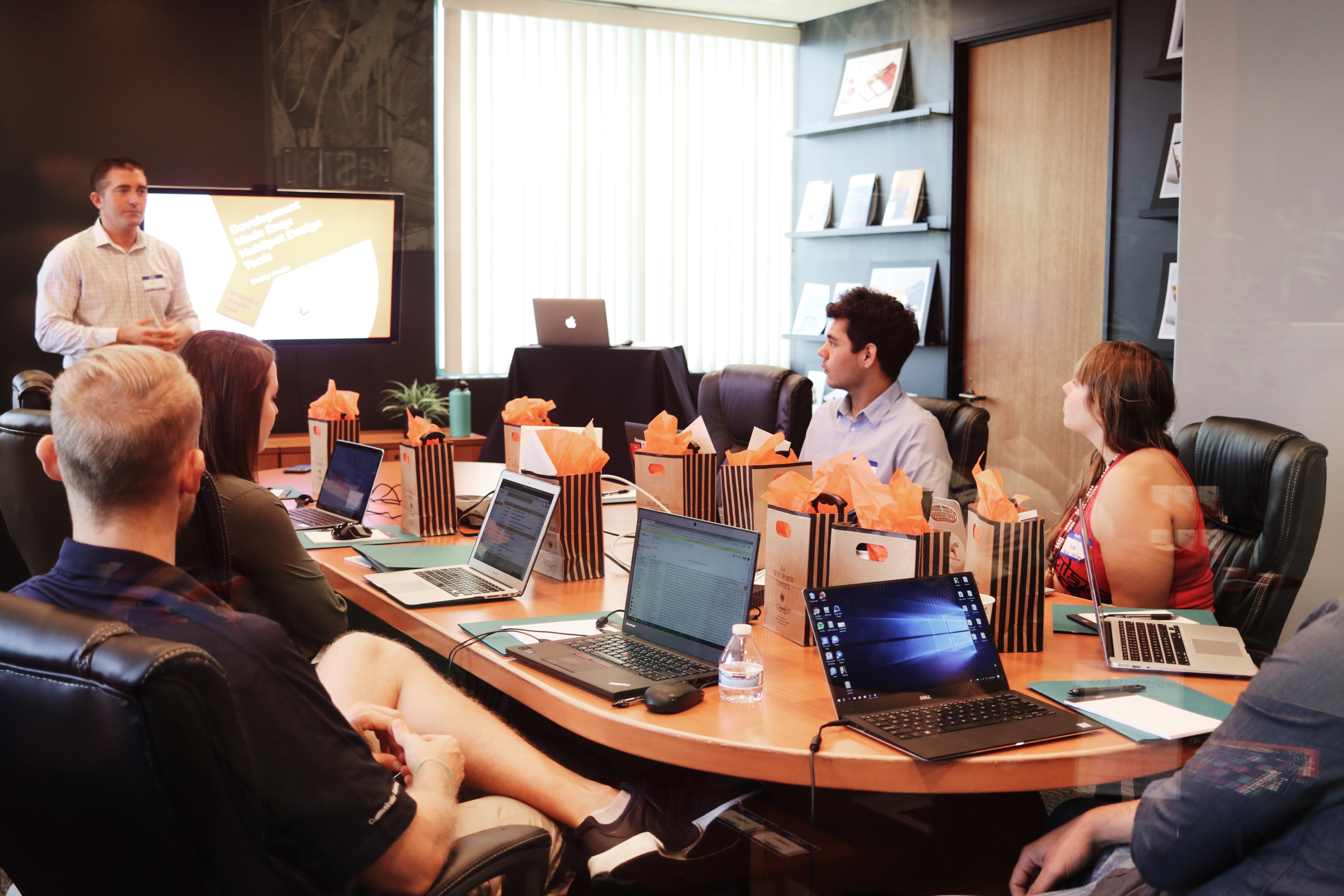Top 3 RPA Benefits for Your Vacation Rental Business

RPA, or robotic process automation, is a technology that uses software robots to automate repetitive tasks in business operations. Entrepreneurs and employees can focus on more strategic, high-value work by automating time-consuming and error-prone tasks.
Robotic process automation has been incredibly valuable in the gig economy, especially for those looking to diversify their investments through vacation rentals. This article will highlight the top three benefits of RPA in vacation rental businesses and outline the best approach for implementing automation into your workflow.

What Is RPA in the Vacation Rental Industry?
In the vacation rental industry, RPA is often used to reduce time-consuming, repetitive tasks involved in managing vacation rental properties, primarily regarding administration and customer relationship management.
RPA ultimately helps hosts provide a better guest experience by ensuring that all relevant tasks are completed accurately and on time. This tool is valuable for vacation rental owners looking to streamline operations and improve their bottom line.
Benefits of RPA in Vacation Rental Businesses
Intelligent automation services have several benefits for businesses, particularly in the travel industry. These benefits can be summarized in three categories: efficiency, accuracy, and cost-savings.
Benefit #1: Increased Efficiency
A term like “robotic process automation” can seem complicated and daunting for business owners in non-tech industries. While the technology is advanced, many of the applications are simple and intuitive.
For example, consider transferring information from a booking system to an accounting system. In legacy systems, information would have to be transferred manually, typing data from another program or manual ledger into an accounting system.
This process evolved into the ability to manually download or extract data from one system and upload it into another with a CSV file.
Now, with intelligent automation, business data can be automatically transferred from one program to another with the click of a button.
Here are three examples of routine tasks you can automate to increase efficiency:
Booking Management
Managing reservations and bookings is one of the most time-consuming tasks for vacation rental businesses. RPA bots can automate this process by automatically updating availability calendars, processing bookings, and sending confirmation emails to guests.
This holistic solution can reduce the amount of time and effort required by vacation rental owners while ensuring potential rental customers have access to real-time information regarding availability and price.
Without unattended automation, rental owners would have to update calendars and bookings manually, increasing the risk of errors and miscommunication.
Guest Communication
Robotic process automation can also automate guest communication, including pre-arrival and post-departure messages, and answer customer queries.
For example, RPA bots can be programmed to send a welcome email to guests before they arrive, including information about the property and local attractions. Smaller businesses can also use RPA services to send post-departure surveys to guests, allowing the business to gather feedback and improve the guest experience.
Without automation, these routine tasks would be difficult to effectively manage for smaller businesses in the travel industry and could diminish the customer experience.
Financial Forecasting and Planning
Robotic process automation software can be used to automate financial reporting, including accounts payable and accounts receivable. For example, RPA software can automatically reconcile bank statements and credit card transactions, reducing the likelihood of errors and speeding up the reporting process.
Robotic process automation can also help with long-term financial decision-making. Rental owners can automate financial reporting, including the preparation of balance sheets, income statements, and cash flow statements.

Benefit #2: Improved Accuracy
Robotic process automation can significantly reduce errors in sensitive data entry and other processes in the hospitality and tourism industry. Data entry and processing are critical components of many vacation rental operations; even small errors can have significant consequences.
Here are some ways that robotic process automation can reduce errors in the vacation rental industry:
Accounts Payable
When applied to the accounts payable process, RPA can help ensure that payments are made on time, reduce the risk of errors in billing and payments, and provide accurate financial data that contributes to advanced forecasting and planning.
First, RPA bots can automate data entry tasks, such as entering guest information or billing details and invoice generation. These mundane tasks are prone to errors when done manually. For example, if an employee accidentally swaps numbers when entering data, it could create a preventable error that takes time and resources to find and correct.
Automated data entry ensures that information is entered accurately and consistently, minimizing the risk of errors resulting in lost revenue, chargebacks, or other financial losses.
Unlike legacy systems, automation plays a powerful role in modernized invoice processing, purchase order matching, and processing payments. Automation can reduce the risk of errors that lead to late payments, duplicate payments, or overpayments, without additional payment consulting.
Improved Analytics
Data-driven decision-making is essential for businesses of all sizes, but it can be especially critical for smaller businesses with limited resources or no room for error. Data can provide valuable insights into customers’ behavior, market trends, and operational efficiency, allowing businesses to identify areas for improvement, optimize pricing strategies, and forecast demand.
For vacation rental operators, which may have limited resources, data-driven decision-making is a cost-effective approach to improving profitability and efficiency without the risks of a trial-and-error approach.
RPA bots can pull valuable business data from several sources — such as reservation systems, online booking platforms, and guest feedback surveys — and present it in one system for easy review.
These tools can also help translate business data into cohesive information. They can process large volumes of data quickly and accurately to help vacation rental owners identify trends, make predictions, or inform business decisions.
Inventory and Asset Management
Robotic process automation helps small teams effectively manage several vacation rental properties through access to improved inventory and real estate asset management.
For example, RPA tools can automate tasks of scheduling routine maintenance, such as cleaning and repairs, ensuring that properties are kept in good condition and ready for guests. These tools can also automate the tracking of inventory, such as linens, towels, and kitchen supplies, ensuring that properties are stocked with the necessary supplies. This helps rental owners save time and stay competitive by ensuring the property is in top condition for customers.
Robotic process automation can also help track and stay ahead of changing regulatory requirements, such as local taxes and permits to ensure that properties are in compliance with local laws and rental or zoning regulations.
Benefit #3: Cost Savings
For vacation property owners, keeping costs low is essential for success. The vacation rental industry is highly competitive, and clients have many options to choose from.
In order to stay competitive, vacation rental owners must provide a high-quality guest experience while keeping costs low. This can be achieved by leveraging RPA technology to streamline processes and reduce costs without sacrificing integrity.
Here are some of the ways robotic process automation helps keep operating costs low.
More Productive Employees
By automating recurring business processes and mundane tasks, automation allows employees to focus on more complex issues.
While RPA tools can solve many challenges in the hospitality and travel industry, some issues require a human touch. For example, dealing with clients who have unique accessibility needs or managing complaints.
Automating tasks also helps employees get more done in a shorter period of time, contributing to lower labor costs and allowing property owners to have a smaller team size.
Additionally, by automating repetitive and time-consuming tasks, staff can focus on more purposeful and engaging work. Finally, the elimination of manual errors and the opportunity for a better work-life balance can reduce frustration and improve morale. This can improve job satisfaction and motivation, leading to higher employee retention rates and minimizing turnover and training costs.
Consistent and Faster Performance
One of the overarching benefits of robotic process automation in various industries is the opportunity for faster workflows without sacrificing consistency. These artificial intelligence tools reduce errors that require reworking, which saves both time and labor costs.
In the vacation rental industry, consistency is particularly important for providing a high-quality experience for guests. By providing consistent service and amenities, vacation rental owners can build a reputation for reliability and quality, leading to increased bookings and positive reviews. This can ultimately contribute to cost savings through increased revenue and repeat business.
By prioritizing consistency in business operations, businesses can realize cost savings in multiple areas, enhancing the profitability and sustainability of the business.
Higher ROI on Marketing Efforts
While this benefit affects all departments associated with the hospitality and tourism industry, it’s worth mentioning the benefits in marketing. Marketing a vacation rental is essential for reaching new customers and retaining existing clients for repeat stays. Unfortunately, marketing is a full-time job which can be challenging for smaller businesses with limited human resources.
RPA can help small rental businesses create a full-fledged marketing strategy with minimal resources. Unattended automation contributes to lead generation and nourishment through automated email marketing flows. Property owners can take videos of the rental and surrounding areas, edit with a free video cropper, and schedule professional-looking videos for posting across social media channels.
RPA is also commonly used in creating dynamic pricing, adjusting the price based on factors such as seasonality, demand, and availability. By automating the pricing process, vacation rental owners can ensure that their properties are priced competitively, leading to more bookings and increased revenue. This aspect of automation is critical as the hospitality industry faces a unique form of scarcity — once a night is left unbooked, that revenue can’t be recovered.

How To Implement RPA at Your Workplace?
RPA solutions are an effective way to improve the consistency, profitability, and overall success of your vacation rental business. However, it’s crucial to reflect on your business processes and determine where the opportunity lies, so you can choose the right tool for your needs.
Here’s a step-by-step guide to choosing and implementing RPA at your workplace:
- Consider your business pain points – Determine what issues take up the most time or contribute to errors within your business processes. These should be the top priorities for correction.
- Identify processes that can be automated – Next, identify processes that are time-consuming, repetitive, and rule-based. Examples of such processes in the vacation rental industry might include data entry, booking management, and accounts payable.
- Choose the right RPA tool – There are many RPA tools available on the market, so it’s important to select the right one for your business needs. Consider elements such as ease of use, integration with existing systems, and scalability when selecting an RPA tool. Customer service and support are also important considerations.
- Start with a trial – Implementing RPA can be a significant undertaking, so it’s a good idea to start with a small trial or focal point to test the waters. This can help you identify any issues or challenges before rolling out the new system more widely.
- Train employees on the new system – Once you’ve chosen an RPA tool and identified the processes to be automated, it’s important to train employees on how to use the new system. This can help ensure a smooth transition and prevent employee frustration or resistance to the new technology.
- Monitor the results – Monitor and evaluate the results to ensure that the system is delivering the expected benefits. Regular reporting and analysis can help you identify areas for improvement and make adjustments as needed.
- Consider the potential for expansion – As you begin to see the benefits of RPA in your vacation rental business, it’s worth considering the potential for expansion. There may be additional processes that could be automated to further improve efficiency and reduce costs.
When choosing an RPA system, it’s not just the tool itself that matters; it’s the provider. Look for a vendor with exceptional customer support to help you transition into automating your business functions.
Final Thoughts
As vacation rental owners continue to embrace RPA technology, they can expect to see increased efficiency, accuracy, cost savings, and improved customer satisfaction — all essential factors for staying competitive.
The benefits of automation are clear, and those who adapt and incorporate these tools into their vacation rental businesses will likely come out ahead in today’s competitive marketplace.
If you’re wondering where to start, try iGMS for dedicated vacation rental software to support your business all year round. A few of the things the software can help you with include:
- Synchronizing reservations across multiple platforms to eliminate double-bookings.
- Using automated templates and triggered messaging to improve communication.
- Automating the process of guest review send-outs.
- Creating and coordinating cleaning tasks with live tracking to completion.
- Managing direct bookings using a direct booking management toolkit.
- Adjusting pricing by means of Pricelabs and DPGO integrations.
Author Bio
Ashley Lipman is an award-winning writer who discovered her passion for providing knowledge to readers worldwide on topics closest to her heart – all things digital. Since her first high school award in Creative Writing, she continues to deliver awesome content through various niches touching the digital sphere.





![Your Monthly iGMS Roundup [February 2020]](/content/images/size/w600/wordpress/2020/02/igms-roundup-feb-2020-cover.png)

